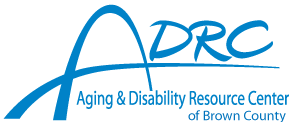Did you know Wisconsin is not a “next of kin” state? If something happens and you are no longer able to make safe decisions about your health and finances, your spouse or family do not automatically get to make those decisions for you. Having decision-making supports in place is crucial for individuals with disabilities transitioning into adulthood.
Let’s talk about how to prepare yourself and your family if and/or when that time comes. It is important to have a plan before something happens!
Supported Decision-Making:
Supported Decision-Making (SDM) can be a very valuable tool for individuals who can make their own decisions but may need additional support in doing so. This is a signed contract between the individual and their Supported Decision-Maker. This document can be presented during moments where a decision must be made to ensure their designated support is involved in that decision.
Power of Attorney for Healthcare:
The Power of Attorney for Healthcare (POA-HC) document indicates who you would like to be able to make your health decisions if you are no longer able to. In this document, you name your “agent” that you trust to make your health decisions. This document is just a draft until two physicians evaluate the person and agree they are no longer able to cognitively make safe health decisions. This “activates” the POA-HC. If someone’s POA-HC is active, there should be an “activation page” with two physician signatures.
Power of Attorney for Finance:
The Power of Attorney for Finance (POA-F) document is different from the Healthcare document. The POA-F allows someone to name an agent to make financial decisions and access bank accounts, property, benefits, etc. This document is usually active upon being signed by a notary, except in specified situations. This document does not take away an power from the individual, but rather gives additional access if needed to help manage benefits and finances.
Guardianship of Person & Estate:
Guardianship (limited or full) is established through the court system. If someone does not have advance directive documents in place at the time they require a decision-maker, guardianship is pursued. “Guardianship of Person” covers things like healthcare decisions whereas “Guardianship of Estate” covers things like finances, property, and benefits. Someone can petition for guardianship through the County’s Probate office.
Though it can be overwhelming to review all of the options, it is crucial to think about these things ahead of time and plan for a smooth transition to adulthood, disability, or a decline in cognitive health. Set yourself and your loved ones up for future success!
If you need help locating these documents or want to have a further discussion about options, contact ADRC at (920) 448-4300.




